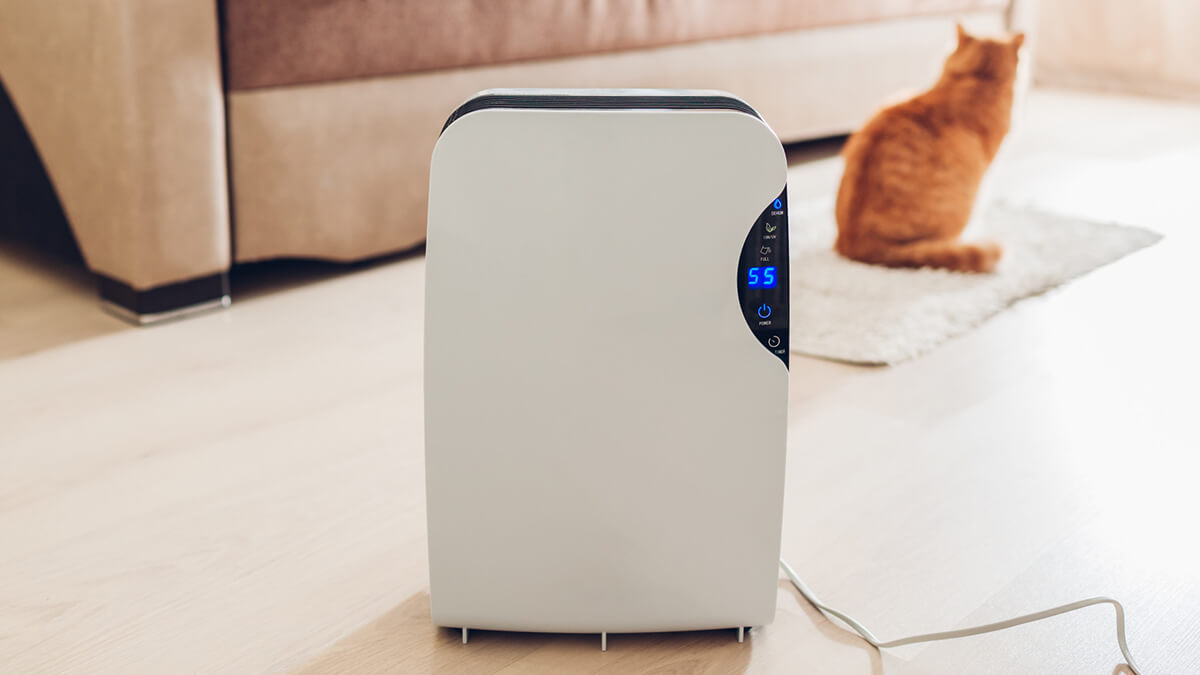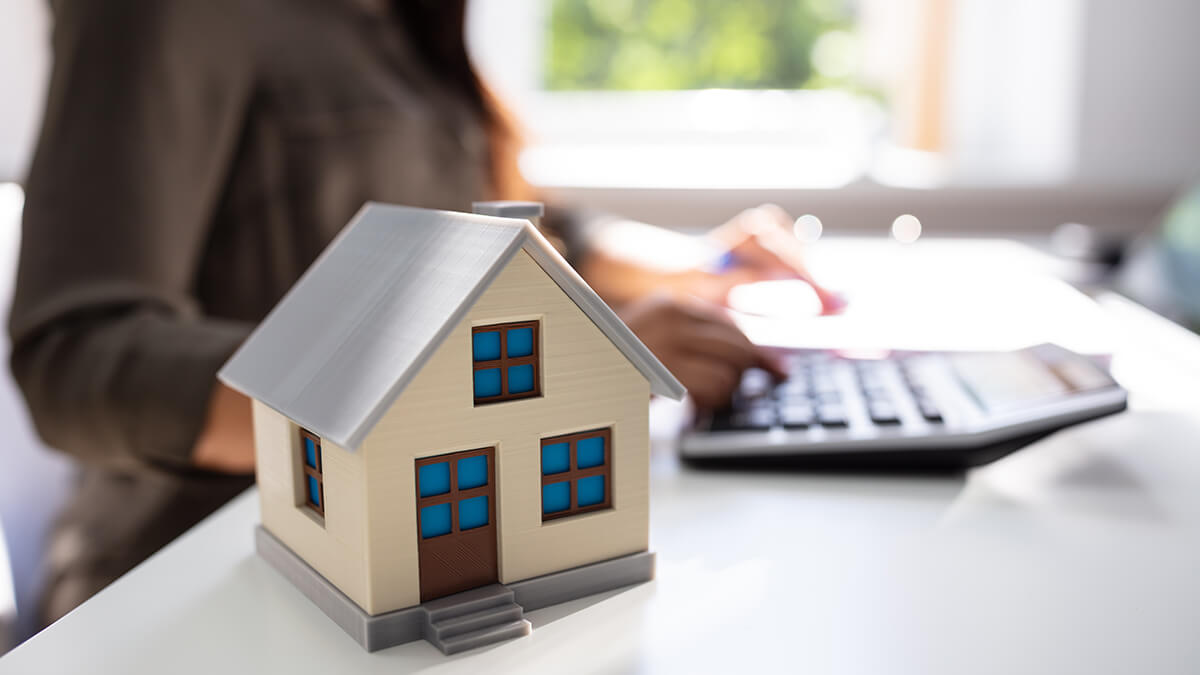Air quality inspections are crucial to maintaining a healthy living environment, as contaminants such as volatile organic compounds (VOCs), particulate matter, mold, and tobacco smoke can often go undetected.
In this article, we’ll delve into the cost of air quality inspections, what factors can affect costs, and how regular inspections can help mitigate the risks of health issues and poor air quality.
Taking proactive steps to maintain healthy air quality in your home will enhance your property’s value, but if you’re looking to sell without the cost of inspections, visit iBuyer.com. We can provide with multiple cash offers for your home in minutes.
Air Quality Inspection
Compare Cash Offers from Top Home Buyers. Delivered by Your Local iBuyer Certified Specialist.
One Expert, Multiple Offers, No Obligation.
How Much Does Indoor Air Quality Testing Cost?
The cost of indoor air quality tests generally ranges from $200 to $500 for homes up to 2,500 square feet. For larger homes, the cost can be between $1,000 and $1,500.
Testing for most commercial properties tends to be more expensive than those for residential homes, reflecting the larger size and complexity of commercial spaces. Factors influencing the cost include the size of the property and the extent of the testing required.
Indoor air quality testing is essential for identifying pollutants and ensuring a healthy living environment. Costs may vary based on specific testing needs, so it’s advisable to consult with professionals to get an accurate estimate.
What is a Home Air Quality Inspection?
During a home air quality inspection, a professional inspector visits your home and conducts a comprehensive assessment of the indoor air quality of your home. This sort of inspection aims to identify potential sources of pollution and contaminants that could adversely affect the safety and well-being of you and your family. This inspection involves a series of tests to ensure that the air inside the home is safe and conducive to a healthy living environment. Depending on your area and individual needs, the tests used can vary. However, here are some of the most common ones conducted.
Mold and Moisture Testing
One of the most basic tests that are carried out simply involves checking for mold growth and high humidity levels. Your inspector will likely collect samples from areas prone to moisture buildup. Depending on the situation, they may also conduct air sampling and take surface swabs to identify mold species and concentrations.
Radon Testing
Radon is a naturally occurring radioactive gas that can seep into homes from the ground. Unfortunately, prolonged exposure to it can create a myriad of health issues, including lung cancer. Your air quality inspector will conduct radon testing to measure the concentration of it indoors, so steps can then be taken to remedy this issue.
Volatile Organic Compounds (VOC) Testing
VOCs are emitted by household products and materials, like paint, and are another key contributor to indoor air pollution. The air quality inspector will take air samples which can then be tested for the presence of VOCs, which can have both negative short and long-term health effects.
Particulate Matter Testing
If you’re experiencing respiratory symptoms or allergies related to pollutants in your home, but aren’t sure where they’re coming from, it’s a smart idea to have the air in your home tested. A professional air quality inspector will ensure air samples are properly collected and analyzed to determine the levels of particulate matter.
Carbon Monoxide Testing
Carbon monoxide is a colorless and odorless gas produced by combustion appliances. This gas can be very dangerous, even at smaller levels, and fatal at larger ones. Carbon monoxide alarms and regular testing of the air in your home are crucial to ensuring it remains at a safe level. A certified air quality inspector can help conduct all necessary testing.
Allergen Testing
For many people, allergies in the home can be a huge nuisance. However, allergies in the home can also be extremely tough to identify and pinpoint exactly where they’re coming from. Some of the most common indoor allergens influence things such as:
- Pet dander
- Pollen
- Dust mites
These allergens can trigger allergic reactions and worsen respiratory conditions. A home air quality inspector can help you figure out where these allergens are coming from, as well as conduct any necessary testing.
Ventilation Assessment
Good ventilation is crucial to healthy home air. A skilled home inspector can evaluate how well your current ventilation systems are working, as well as pinpoint any potential issues that may be leading to decreased air quality. They can then take steps to help ensure proper airflow and circulation to prevent the future buildup of more pollutants.
Once all of the necessary testing has been completed, your home air quality inspector will likely provide you with a detailed report. This report usually includes valuable information such as:
- The findings of their tests
- Analysis results for any air samples taken
- The types of mold identified in your home
- Potential health risks to you and your family
- Recommendations for improving indoor air quality in your home
Factors Affecting Home Air Quality Inspection Cost
Like any home appraisal, home air quality inspection costs can vary quite a bit depending on your situation. The main factors affecting air quality inspection prices typically include elements such as:
The Size of Your Home
Indoor air quality assessment prices can be higher for homes that are more expansive in size. This is because larger spaces typically require more time and resources to inspect properly. The square footage of the property often directly impacts the extent of testing and the number of samples that are taken, which can contribute to these higher costs.
The Number of Rooms Tested
Besides just the square footage of your home, the actual rooms within it can also impact residential air quality evaluation costs. The more rooms tested within your home, the more samples need to be collected. Each additional room adds to the time and materials required for testing, as well as the labor that is needed to complete the job.
Your Home’s Location and Accessibility
Did you know that the geographical location of your home can affect air quality inspection costs as well? If you’re located out in the countryside or live fairly remote, inspectors may charge more to travel to your home due to fuel and vehicle costs. In addition, if the inspector is going to be conducting testing in difficult-to-reach locations (like your crawl space or attic), they may charge more for this extra effort.
Specific Tests Required
Homeowners should also be aware that different tests (such as radon or mold due to water damage) can also factor into pricing. This is because additional tests may sometimes be required, or samples may need to be sent off to the lab for identification or further analysis. If you’re concerned about a particular contaminant in your home’s air, it’s a smart idea to ensure the inspector your hire has experience dealing with it.
The Complexity of Your Concerns
Depending on how extensive or complex your home air concerns are, prices can also vary. If there are specific health symptoms that you and your family are experiencing, or your home has known issues, there may be a need for more extensive testing. Identifying and working to correct these concerns is also likely to increase the cost, however.
The Reputation and Experience of the Inspection Company You Hire
When considering having a home air quality inspection done, the quality of the company that you hire is crucial. Established and reputable inspection companies with a track record of accurate assessments and detailed reports might charge higher fees, but you’re also much more likely to get a job well done.
The Air Quality Report’s Details
The comprehensiveness of the home air inspection reports can depend greatly on the company hired. A more detailed report typically comes with thorough explanations and actionable insights but will cost more. However, for most homeowners, these recommendations are well worth the additional cost.
Your Local Market Factors
Besides report quality and company reputation, your own unique local market can also play a part in influencing pricing. If you live in an area where the cost of goods and services is typically hired or there are limited inspection company options, you can likely expect to pay accordingly.
While inspection costs can vary, investing in a reputable and thorough inspection of your home is key to ensuring the air inside remains hospitable. Obtaining a quote from an experienced inspection company and discussing with them the details of the inspection can help you properly understand the costs associated with this testing.
Are There Any Additional Costs and Optional Tests?
Besides testing the overall quality of the air in your home, you may also opt to have additional testing or analysis conducted, based either on your preferences or the recommendations of the inspector. It’s important to note that additional fees can also apply in these scenarios, in order to properly understand what you’ll be paying. Common additional charges that can occur when doing home air testing can include costs such as rush fees or mailing expenses, should you need to have samples sent to a lab. Depending on the situation, the laboratory analysis can also cost extra.
D.I.Y. Home Air Quality Testing
While there are some D.I.Y. (do it yourself) air quality testing options out there, they aren’t as comprehensive as the ones that are professionally available. When it comes to the quality of the air in your home, it is always generally advisable to invest in having a certified inspector conduct all services. They are equipped with all the necessary resources and experience to properly sample and analyze your home’s air.
Conclusion
Pollutants and contaminants in your home can trigger a number of both serious short and long-term health consequences. These can include:
- Pet dander
- Mold
- Randon
- Poor ventilation
- VOCs
- Tobacco smoke
Unfortunately, all of these can remain in your home’s air and make you, your family members, and even your pets sick! Common symptoms of poor home air quality typically include symptoms such as:
- Respiratory Irritation
- Allergy Aggravation
- Worsening of Asthma
- Shortness of breath
- Wheezing
- Fatigue
- Headaches
- Dizziness and Nausea
- Lightheadedness
- Respiratory Infections
- Skin Irritation
- Exacerbation of Pre-existing Conditions
- Cognitive Impairment
- Cardiac Issues
- Lung Cancer
You also might be wondering what else you can do to improve the quality of air in your home besides regular testing. The great news is that there are a number of easy and simple steps that you can take! They include:
- Clean on a regular basis, including dusting and vacuuming
- Ensure adequate and working ventilation in the home
- Use air purifiers and HEPA filters to trap particles
- Take steps to control humidity levels in your home, such as with a dehumidifier
- Don’t smoke indoors
- Always choose low-VOC products whenever possible
- Keep your pets clean, including regular brushing and bathing if needed
- Organize your space and work to reduce clutter
- Use an exhaust fan while cooking
- Have your HVAC unit maintenance regularly
- Use allergen-proof covers for pillows and mattresses
- Close your windows during times of the year that are high in pollen
- Limit your use of synthetic fragrances, like candles and air fresheners
Keeping your home’s air clean is a key part of keeping your home in a safe and marketable condition. Curious about getting an accurate and fast value estimate of your home? Use our state-of-the-art iValuation tool to find out your home’s worth now. Our price estimator pulls real-time industry data and advanced algorithms to ensure you get the more accurate number possible.
Instant Valuation, Confidential Deals with a Certified iBuyer.com Specialist.
Sell Smart, Sell Fast, Get Sold. No Obligations.
Reilly Dzurick is a seasoned real estate agent at Get Land Florida, bringing over six years of industry experience to the vibrant Vero Beach market. She is known for her deep understanding of local real estate trends and her dedication to helping clients find their dream properties. Reilly’s journey in real estate is complemented by her academic background in Public Relations, Advertising, and Applied Communication from the University of North Florida.




